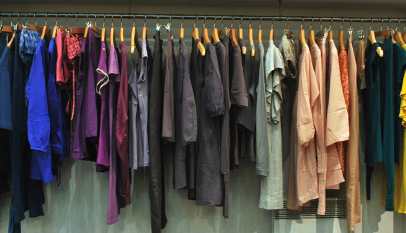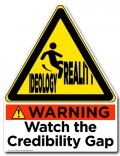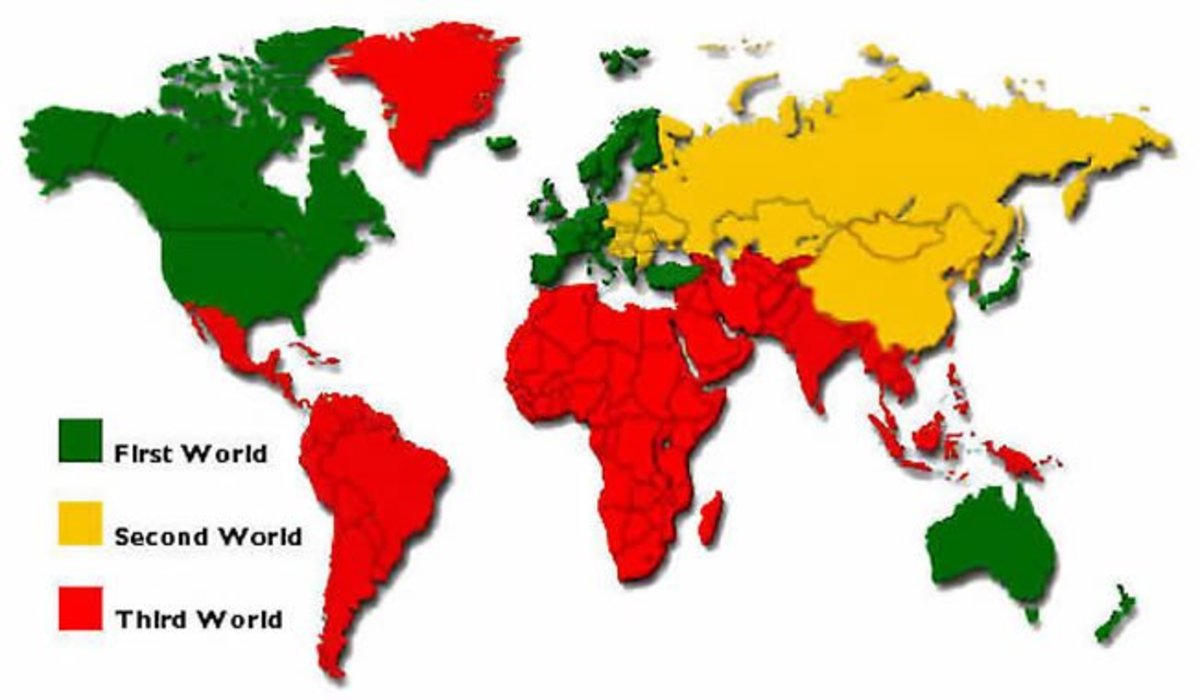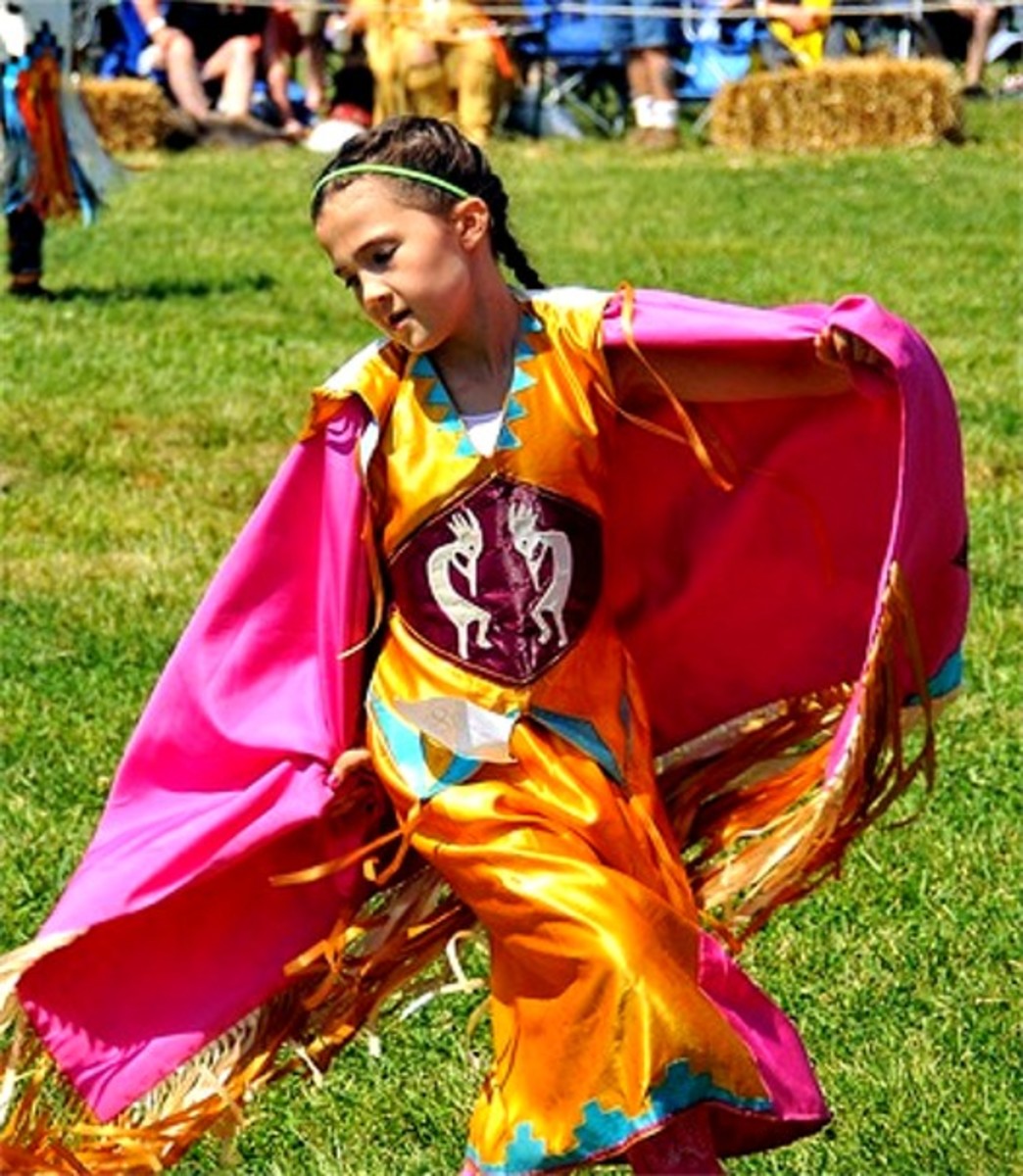Perspectives: Knowing Your True Self ~ The Emperor's Old Clothes
For an introduction to premise and intent behind the 'Perspectives:' series visit the link provided below, and to enjoy the other perspectives by my fellow contributors visit the links listed at the end of this hub ~

Getting Into Your Own Head
Considering your 'self', within yourself, I mean contemplating and examining who you are and what you are like as a self-contained exercise inside your own head, is a tricky bit of business. The whole concept behind this whole 'Perspectives' series is to benefit from not just seeing your own view and understanding of things, but to look beyond your personal perspective and to be informed by the perspectives of others. But the counter-culture movement of my generation, the 60's babyboomers, coined phrases like 'finding yourself' and 'getting into your own head' in their effort to escape the socially ordained course our culture and the previous generations dictated we must follow. On a number of the issues the hippie culture confronted, we owned a keen and vigorous apprehension of a number of the ills and wrongs we found ourselves in the midst of, but the solutions, or better way, we suggested were often ill-informed, fanciful, or just self-indulgent.
The generation that preceded us looked at our interest for self-realization, to 'find ourselves', as little more than an ambiguous lack of productive effort toward anything genuinely useful, a needlessly concocted mystery. These people were a generation closer to the pioneer sensibility, their grandparents and/or great grandparents stepped away from safety to mark-out their spot in the world, and they themselves struggled through the Great Depression and witnessed the unspeakable horrors of World War II defending the principles their nation esteemed and were built on. To them, pulling at your bottom lip as you tilted your head upward to 'find yourself' was nothing but ludicrous - they 'found themselves' in the hard work of living the lives they were dealt.
But that was kind of the point . . . the lives we were dealt (the young White hippies of the 60s) were simply not that hard, we weren't tested in a manner that demonstrated to us who we were and what we were like. We had sort of a puzzle before us of discovering our real 'self' in an, almost recreationally contemplative manner - we didn't have much objective experience to observe and make deductions from as to what we might be capable of, what we really wanted out of life, how we might participate and contribute to a collective good, etc. We kind of had to simply go into our own head and attempt to 'find' who we really were and what we were really like.
Now, the times were indeed tumultuous and many people were confronted by terrible hardships, but for the most part, in the White hippie counter-culture, we were observers and/or peripheral participants in the real hardships and hurt of our time. However, that has it's own, powerful, impact - we weren't discriminated against because of the color of our skin but we had to choose sides, we weren't being shot at in a foreign land but we had to choose sides, etc . . . there were all kinds of rigorous and consequential battles that came to our very doorstep, and we were called on to determine what we stood for and what we stood against. Our times, our experience, our generational disposition placed our struggle to 'find ourselves', not in our deeds and accomplishments, but in our head and our hearts.

The Suicide Of 'Self'
When I was 10 I lived on an all-White block in a northeastern city, everything east of 18th Street was White and everything west of 18th Street was Black. When I brought a Black friend home from school half the neighborhood was on our front porch demanding that we get that little "ni _ _ er" off their block - we had to look within ourselves a determine who we wanted to be and what we wanted to be like. When I was 17 my mom was beginning to make plans to send me off to Canada to avoid the Viet Nam War - I had to look within myself a determine who I wanted to be and what I wanted to be like. Every generation and every individual has the world that they live in, the issues that they face, the hurt and the joy that is specifically theirs . . . certainly my White neighbors telling White me that my Black friend was not welcome in their neighborhood was not as direct or heavy a burden as my Black friend hearing that he was not welcome, and certainly running off to Canada was not nearly as dangerous and horrifying as being shipped-out to Viet Nam - but everyone's experience is their experience, everyone can only know what they do in fact know, and no one has any right to tell another that their life is fine and that they should feel free of hurt or fear.
My generation had a remarkable experience of contemplative, internal consideration of who they wanted to be and what they wanted to be like. That opportunity was often wasted, it was regularly practiced to an excessive degree, it became co-opted by self-asserted gurus who marketed self-realization, etc, etc - but it also made examining yourself to discover the real 'you' and not just assuming the role that previous generations and your culture hand to you a legitimate course. It is a suicide of 'self' to simply adopt as your own the interests, fears, and hopes of others, either other individuals or the culture you find yourself born into . . . or an 'other' culture.
One sad consequence of the counter-culture's practice of not falling in-line with convention has been the swooning over foreign, exotic, 'other' cultures. Suddenly (historically speaking) John Wayne is evil and Geronimo is noble, Christianity is wicked and Hinduism is romanticized, mashed potatoes are lame and hummus is cool. My generation left behind many of the things they were born into to delight in things others were born into . . . young people were stumbling around seeking mantras and mocking patriotism and wearing clothes and eating food that was simply some other culture's fashion and cuisine. In an effort to avoid simply adopting convention and sliding right into the life you were expected to live, many since the 60s have done little more than assume a contempt for the familiar and chase after a delight for something 'other'.

The Prefabricated Persona Closet
The public advance of what's (currently) cool and the media's representation of what we should have disdain for, feed the individual's longing to fit in, to be accepted. Consider the contestants on tv talent competition shows who don't want to make beautiful music but just want to be famous, they don't think they should win because they can sing so remarkably well but because they are so special . . . again and again they say things like 'If only America can get to know me, can see me a tv, they would love me'. And so popular culture catalogs and presents to us who we all are and what is acceptable and what is not; single moms are heroic while happily married moms are probably unable to make decisions on their own, the gay guy on a tv show is decent and honorable while the heterosexual guy watching NSCAR with a beer is likely not too bright and undoubtedly homophobic, the young public defender or teacher is noble while the oil company or bank employee is corrupt, etc. We have cartoonish types, prefabricated personas set before us, and in our fearful effort to be accepted, to be cool instead of mocked, too many simply go to the closet of ready-to-wear personhood and select who we want to be.
One young girl is vegan and hates Republicans and listens to Mumford & Sons and some middle aged man is afraid of his boss so he pushes his wife around and drinks too many beers every weekend and stays home while he sends his kids to Sunday School . . . but, are either of them really those people? Have either of them ever removed themselves from the current that has swept them up and carried them along and earnestly considered what they really want, what would really make them happy? Not what people like them like, not what tv tells them brings happiness, but what about them might remain had they been born in Peru or had been born 400 years ago?
I fear that a great many people, and perhaps all of us to a degree, don't become the true 'us' that we have within us to be, but simply put on a persona of who we wish we were, who we think others will approve of, who our contemporary culture asserts we ought to be. I honestly think that many more of us than we might at first consider, don't know what kind of music we like, what kind of food we like, what our own true thoughts about life & death are, what we think about ourselves and what we think about God, etc. Some went to the prefabricated persona closet so long ago and so naively, and they so un-ceremonially picked-out who they thought they ought be and put that on, and they have lived so long in their ready-to-wear personhood, that they genuinely think that's who they are.
We need to regularly examine ourselves, not in a self-aggrandizing manner, but in a real stripped-down and critical manner seeking truth . . . why do we care so much what others think and when did we start reading one romance novel after another and why do we hoot and cheer when a chef says he's adding more wine to his dish, etc, etc - what is it that would genuinely make us happy?










